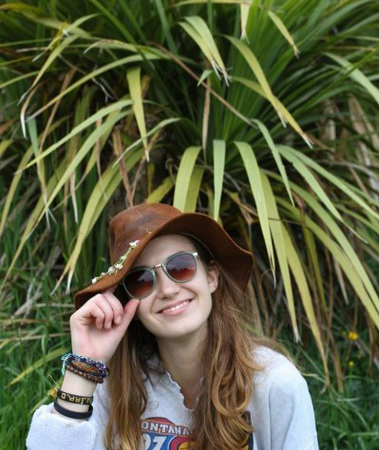As I write this, I'm waiting for our students to return from their weXplore, a five-day excursion that takes students beyond their host city for immersive cultural experiences. For the past two months, we as a school have called Maun, Botswana, our home. It's a small town on the edge of the Okavango Delta and, for many travelers, a doorway into Africa. But Maun is only one perspective, and it...
Read More
While enrolled at THINK Global School, students are encouraged to be creative during the course of their studies and travels. When the students document these thoughts, we are often delighted with the results. In her reflection piece “What Indiana Jones taught me about hats and home,” 11th grader River W. opens up on her definition of home, and why those in a perpetual state of travel might find it to be closer than they think.
When I was little, I thought I was going to be the next Indiana Jones.
As it turned out, there were a few problems with that plan.
I was female. I was eight. I’ve never been the murderous type.
More importantly, I was not from Indiana nor did I identify with the name Jones.
Looking back, I suppose I didn’t really want to be Indiana Jones so much as I wanted to run around the world and discover the forgotten while wearing a fantastic hat.
So it felt rather serendipitous when, only a week after finding the reincarnation of Indy’s hat, I realized I’d be taking a trip to the dark and mysterious center of New Zealand’s South Island.

Photo by THINK Global School student Madeline S.
Like many chronic travelers, I have the affliction of detachment. A subconscious mantra that, when consciously articulated, is a bit like “don’t cry because it’s over, smile because it happened.”
But in our minds, it’s considerably less cliché.
As a traveler, you’re never leaving; you’re going somewhere else. Because when you’re a nomad, your neck is always too cramped from long bus rides, nights spent staring at the stars, heavy backpacks, and sleepless naps to look back.
I expected Peel Forest to be no different. But from the start, something was off. I was too comforted by the ridged spine of the mountains, too contented with the scratches etched on my legs. I spent my days in the wild as my eight-year-old self would have — making daisy chains and turning over rocks. And as I drove away, I was struck by the startling feeling that I was going to come back.
Until that moment, I hadn’t realized what my childhood had given me. My very foundations were rooted in the mountains of Montana, in the hushed breath of pine trees and the thick soles of hiking boots. But when it’s all around you, it’s impossible to see.
Like oh-so-many of the habitual vagabonds, I didn’t realize what home was until I left. But unlike most, I’ve started to find home in places I’ve never been. Because home isn’t just a street address or a poorly decorated bedroom. It’s a culmination of little bits and pieces, slammed together with the mighty forces of geography and fate.
The ingredients in that masterpiece aren’t often singular. In fact, they can be found scattered around the globe. And travelers flock to them like moths to light, unable to control that primal urge that pushes them forward.
At the end of the day, everyone wants to be a part of something, to feel connected to the bigger picture, to have a home. Often, travelers shy from the word, as if it’s synonymous with ball-and-chain. But it’s not. Home isn’t confined to a geographical location; rather, it’s an omnipresent, unavoidable force. It’s only a matter of choosing to recognize it.